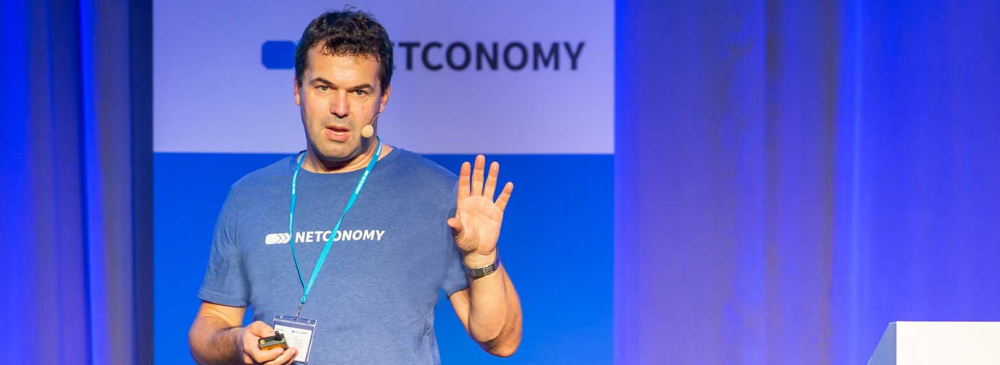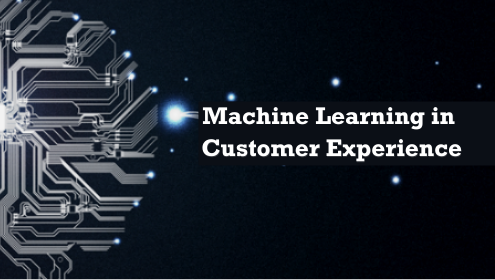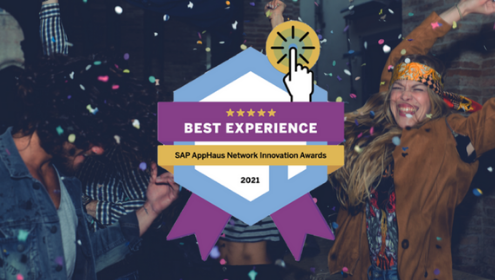Years after acquiring Hybris, SAP made several other complementary acquisitions in order to cover the market demand for a unified customer experience platform. It’s been a year since C/4HANA has been introduced as the fourth generation CRM platform, aiming to cover the entire front-office and help businesses become connected enterprises.
What is different now in terms of how brands approach their customer experience strategy? And is there a shift in the mindset that goes along with that? We sat down with our CEO Martin Barzauner to get some insights into the current state of the market.
Let’s start from the beginning. How do you see the change that happened over a year ago? And for the ones who are not familiar with SAP solutions – what is so special about C/4HANA?
If we talk about “customer experience”, unfortunately it’s a generic term everyone interprets in their own way. In the past, software providers would go out to companies offering individual solutions for commerce, marketing, etc., but it is becoming evident that the big picture needs to be taken into account. A year ago, SAP came out with the offering of an entire suite of customer experience components, built specifically for handling the needs of commerce, marketing, sales, service, and customer data. Individual Hybris solutions were solving certain challenges, but it was never one umbrella that could cover everything. No matter what you would first think when you hear the term “customer experience”, I believe everyone would agree that perfect experience requires the deep synchronization of all underlying organizational aspects (e.g. marketing, commerce, sales, etc.). The software, therefore, should be without silos as well. There is this second center of gravity that came into life with C/4HANA – a suite that offers a holistic front-office layer, agnostic from any backend and perfectly integrable with both SAP and non-SAP backend system.
Does this change also trigger a different approach to implementation projects?
Absolutely. It’s not only about a web shop or sales force automation anymore. It is now about putting all the pieces together in an integrated way – as digitalization of the core business is now really starting. During the last years, we have evolved into a company that helps brands in extending their core business model into the digital world. A modern customer demands a frictionless experience across all touchpoints, and traditional thinking is not going to work here anymore. It is crucial to digest what the customer needs before he understands and can tell you. In those terms, we help brands to look beyond just e-commerce, to aim to be faster and proactively bring innovation to customers. Extending the entire business into the digital world requires a stable foundation, and this is where C/4HANA fits perfectly. With this platform, we are able to do things that we haven´t been able to do before – both within a B2B context, where the business model is sometimes more complex, and in B2C.
Over the last year, NETCONOMY was also engaged in several innovation projects with SAP. Can you point out a few of the most interesting ones?
We have worked with several customers on innovation projects – from design thinking to design doing. One of them is the InStore Sales Support app, jointly built with Apple and SAP, which caught much attention during the CX Live in Orlando. This app connects customers and sales assistants in order to improve the in-store shopping experience. Customers can choose to share their information with the sales assistant – including the size and preferences, making it easier for the assistant to support the customer, give additional advice and upsell. Communication happens in real-time, so customers can, for instance – use the app to ask the assistant for a different size while being in the changing room. We introduced several innovative functionalities here, such as mobile checkout and smart label scanner. This innovation also leveraged the joint initiative between SAP and Apple and we are proud we were selected to be one of the core partners. Another thrilling project is the video commerce platform we develop for Now United. It allows you to select products in real-time while streaming a video – not having to go away from the video player, and being able to finish the purchase right after watching. Both examples show also that even if the case is very specific, it can easily be adopted into a different customer’s context. This is truly the future of customer experience, and we are already working on it today.
From your experience of working with brands on their innovation initiatives, what do you see as the most common challenge they have to overcome?
For the ones that have the necessary flexibility to step into an innovation case and build a prototype, the next challenge is always to bring it to life and start with the production. The reason is simple and understandable – innovation always has an impact on the existing business. Moreover, there is probably some kind of risk combined with that. Whenever there is a chance to progress, there is also a risk. This is why companies pick their partners in these cases very carefully. On the other hand, the good thing is that when they step into an innovation project and start working with design thinking – that also triggers a certain change in the overall mindset. It triggers a different way of thinking and a shift in the entire company in order to bring additional value to the existing business model. What innovation in technology brings is not only new software but an entirely new approach. I believe that in the future, when the business model is expanded into the digital world end-to-end, the innovation topic will get even more attention than it has today.
Technology is progressing so fast today. On the one hand, Customer Experience is considered to be one of the fastest growing software markets. On the other hand, SAP has done a lot since the launch of C/4HANA but also has some very ambitious plans for the future – we heard interesting plans on visual search, digitalized identities, and negotiation bots. In your opinion, what’s the next big thing when it comes to customer experience?
Machine learning will definitely have an impact in various ways – visual search, for example, is based on it. Speech recognition is based on machine learning, too. What we also see is, that the way we express demand or search for products and services will evolve in general. Businesses will be able to focus their workforce on things that really create value for the customer. If we talk about service – and we hear often that “customer service is the new marketing” – machine learning will play a significant role here as well. If customers can avoid waiting for a human to push the button in order to get or fix something but rather have some kind of a smart component for that, they will for sure be happier about their experience with a brand. There are many startups and machine learning-based components and services that are going to create significant value. It becomes vital to have an overview of the market and be smart in combining them together on top of C/4HANA.
“The pace of change has never been this fast, yet it will never be this slow again.”* Seamless is not only a buzzword anymore, and digitalization is a must – not only when it comes to e-commerce. We are now preparing for the generations that grow up with mobile devices. We must adjust to the needs of digital natives, and this requires digitizing the entire business – from communication channels to supply chain and customer service. The truth is that customer behavior is changing way faster than traditional organizations anticipate change and adjust business models. Change will never be impactful if it’s an effort of a single person or a group – it must be a journey that the entire organization will take on, often with a strong and experienced external partner.
Have you already started your journey? Contact us.
*https://www.weforum.org/agenda/2018/01/pm-keynote-remarks-for-world-economic-forum-2018/





